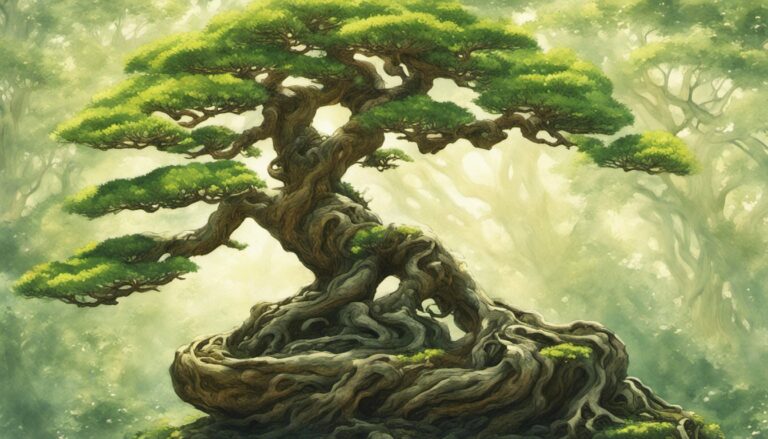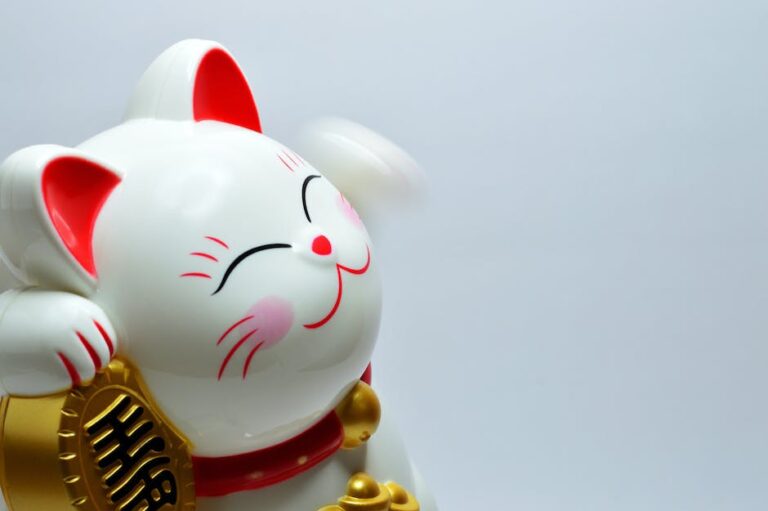What Did The Bonsai Tree Represent: Symbolism and Meaning
Have you ever wondered about the meaning behind the bonsai tree? Similar to the saying ‘a little goes a long way,’ the bonsai tree embodies this wisdom.
Originating from ancient China and Japan, the bonsai tree represents harmony and balance. It serves as a reminder of our connection to nature and the beauty that surrounds us.
Beyond its physical appearance, the art of bonsai carries profound spiritual and philosophical teachings, imparting lessons of patience, perseverance, and the significance of living in the present moment.
Furthermore, bonsai has had a profound impact on modern art and culture, inspiring artists and enthusiasts worldwide.
So, let’s explore the fascinating world of the bonsai tree and uncover its symbolic meaning and timeless allure.
Origins of Bonsai
The origins of bonsai can be traced back to its rich history and cultural significance. Bonsai, which means ‘tray planting,’ first originated in China and was later embraced and refined by the Japanese.
The art of cultivating miniature trees holds deep symbolism, representing cultural harmony and balance. Bonsai trees undergo meticulous pruning and shaping, reflecting the spiritual discipline practiced by Zen monks.
These dwarf trees require careful cultivation, embodying the beauty of nature in a small and controlled form. Through bonsai, we can appreciate the intricate connection between humans and the natural world.
Bonsai as a Symbol of Harmony
Cultivating bonsai trees is a practice that symbolizes the harmonious relationship between humans and the natural world. This art form involves carefully pruning and shaping miniature trees to capture the beauty of nature in a controlled and compact form.
Bonsai originated in ancient China and Japan, where it was embraced as a way to achieve a balance between human intervention and the inherent beauty of nature. Over time, various styles and techniques have emerged, but the core essence remains the same – fostering a cultural harmony between humans and the natural world.
Bonsai is more than just visually pleasing trees; it represents a deep connection and appreciation for nature.
Bonsai’s Connection to Nature
Appreciate the deep connection between bonsai trees and nature as you witness the delicate balance between human creativity and the inherent beauty of the natural world.
Bonsai trees, these small replicas of nature, symbolize the harmonious relationship between mankind and the environment. Through careful cultivation, they capture the essence of natural growth in their intricate leaves and branches.
When placed in a landscape, they become a living embodiment of cultural harmony. Like bringing a piece of the mountains indoors, bonsai trees serve as a constant reminder of our profound connection to the natural world.
Spiritual and Philosophical Meanings of Bonsai
Exploring the spiritual and philosophical meanings of bonsai trees reveals their deep symbolism in various cultures and belief systems. Bonsai trees have a long history rooted in techniques passed down through generations. They’re revered as plants with mystical qualities, representing cultural harmony and the interconnectedness of all living things.
In the practice of Zen Buddhism, bonsai serves as a form of meditation, fostering inner peace and harmony. The aesthetics of bonsai inspire contemplation and reflection, while the act of nurturing and shaping these miniature trees can have a therapeutic effect on the mind and soul.
As bonsai trees hold profound symbolism in different cultures and belief systems, their history can be traced back through generations. These magical plants are seen as a representation of cultural harmony and the interconnectedness of all living things. In Zen Buddhism, bonsai is practiced as a form of meditation, allowing individuals to cultivate inner peace and harmony.
The contemplative nature of bonsai’s aesthetics encourages deep reflection. Moreover, the act of nurturing and shaping these miniature trees has been found to have healing effects on the mind and soul.
Bonsai’s Influence on Modern Art and Culture
Exploring the impact of bonsai trees on modern art and culture reveals their significance as symbols of unity and friendship. These unique trees embody cultural harmony and serve as a testament to the wisdom and patience required for their cultivation. Artists have drawn inspiration from bonsai, creating artworks that capture the strength and passion found in nature.
Additionally, the gifting of a bonsai represents a profound connection and appreciation for someone’s character. In contemporary culture, bonsai has emerged as a powerful symbol of tranquility and harmony. Its influence on modern art and culture is undeniable.
Conclusion
The bonsai tree holds multiple meanings, including harmony, a connection to nature, and spiritual and philosophical significance.
Its roots can be traced back for centuries, and it has become a significant symbol within Japanese culture.
The art of bonsai has also influenced contemporary art and culture, showcasing the beauty and balance that can be achieved through careful cultivation and shaping of these miniature trees.
Overall, the bonsai tree represents tranquility and a deep appreciation for the natural world.


